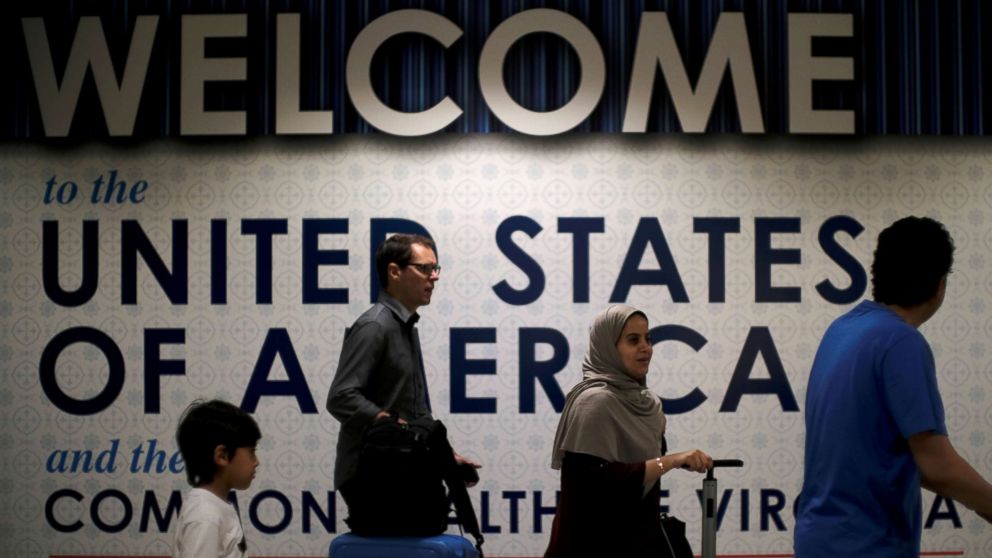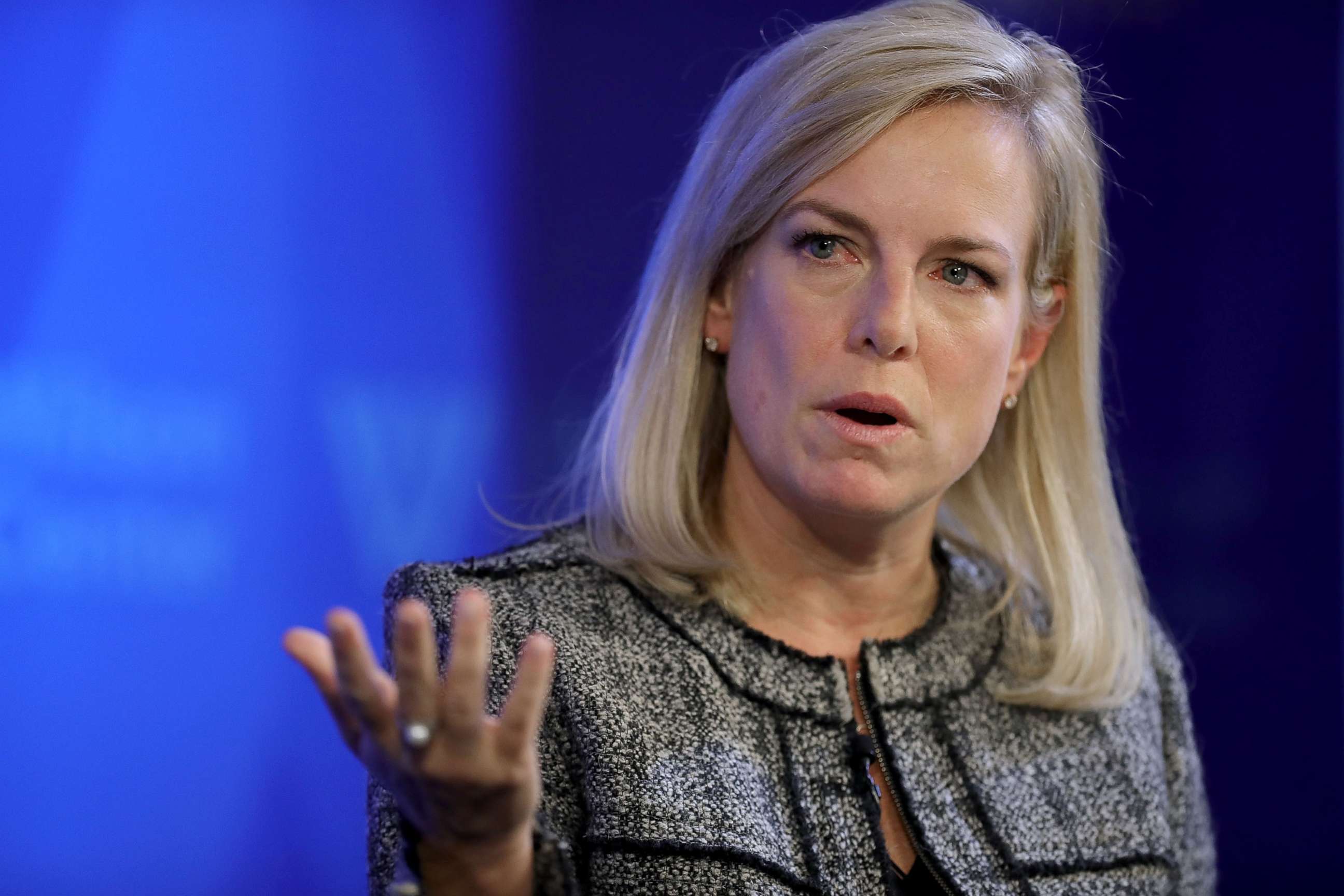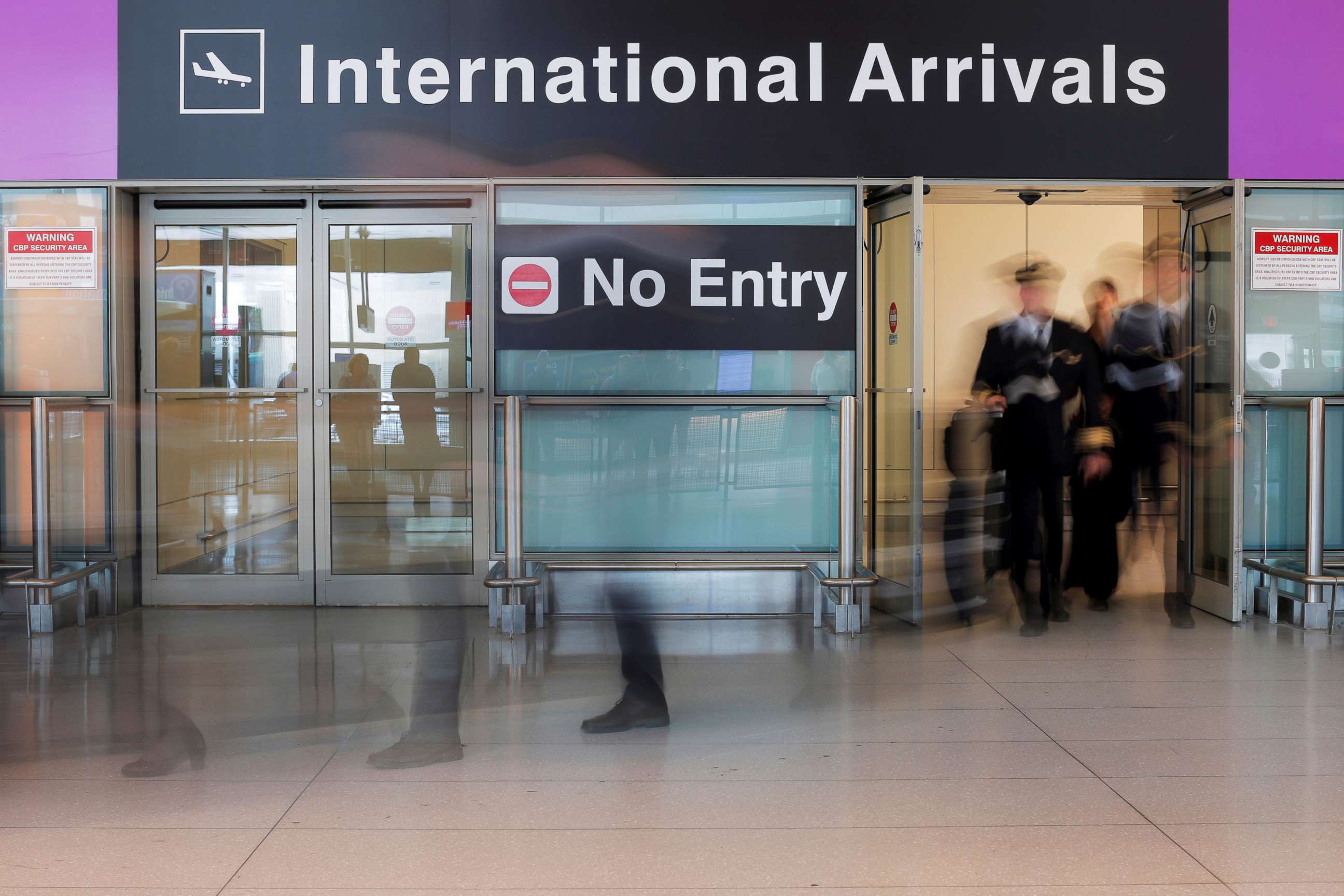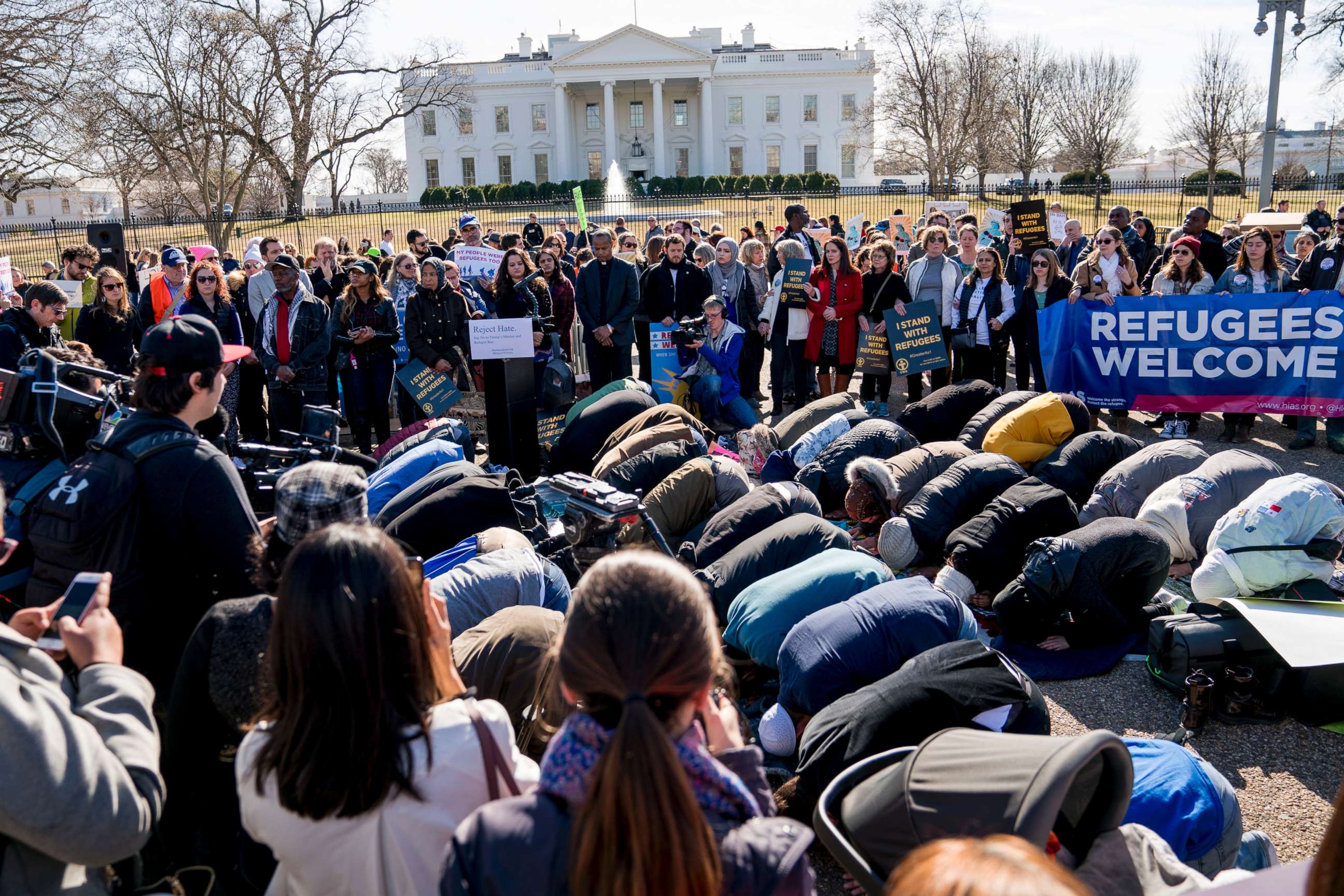Refugee resettlement resumes, but with new conditions
The new security measures were announced Monday.

— -- The Trump administration announced Monday that it is resuming all refugee admissions, while at the same time implementing new security vetting procedures for 11 "high-risk" countries. The new measures stem from President Donald Trump's original so-called travel ban, which ordered a 120-day ban of all refugees entering the U.S.
"We will be rolling out new security measures from high-risk countries which will seek to prevent the program from being exploited by terrorists, criminals and fraudsters," said Department of Homeland Security Secretary (DHS) Kirstjen Nielsen during public remarks today.

In October, Trump issued an executive order that resumed refugee processing for most countries. However, at the time, an additional 90-day review was ordered to assess the security risk from the 11 countries, while only admitting nationals from those countries on a case-by-case basis. Individuals from those countries also had to prove that it was in the "national interest" to resettle in the U.S.
At the time, DHS announced that it was enhancing security measures for all refugees entering the U.S.

As a result of the 90-day review, which was done in conjunction with State Department and intelligence community, Nielsen determined that additional screening and vetting are required for nationals of the designated high-risk countries. For example, Nielsen directed U.S. Citizenship and Immigration Services (USCIS) to conduct "even more in-depth interviews" of refugee applicants.
"It will not only help improve security, but more importantly, they will help us better assist legitimate refugees fleeing persecution," said Nielsen about the changes to the program.
Administration officials would not share additional specifics on the type of security enhancements that are being implemented, citing law enforcement sensitivities.
Officials acknowledged that the implementation of the new security enhancements could have an impact on the speed at which refugees from these countries are processed.
According to senior administration officials, the entire refugee program also needs to be administered in more of a "risk-based manner" when considering overall refugee admissions, regional allocations, and the groups of applicants considered for resettlement.

Lastly, DHS determined that the group of 11 countries, which has not been updated since 2015, needs to be reviewed and selection criteria for additional specialized screening need to be updated.
Though officials won't publicly confirm that list, ABC News has reported the countries that require extra screening are Egypt, Iran, Iraq, Libya, Mali, North Korea, Somalia, South Sudan, Sudan, Syria and Yemen -- a group that together made up 43.48 percent of all refugees admitted to the U.S. in fiscal year 2017.
By January of fiscal year 2017, Syrians fleeing the war comprised 15 percent of arrivals in the U.S. compared to .5 percent at the same time this year, according to a new International Rescue Committee (IRC) study.
Only 81 Iraqi refugees have been resettled in the U.S. since October 2017, 1 percent of the total, found the same study.
IRC projects 21,292 refugees will be resettled in the United States in fiscal year 2018, far below the Trump administration’s 45,000 refugee cap, according to a new study by the group.
When asked about the refugee cap, an administration official pointed out that the 45,000 number is a "ceiling not a floor."
Nielsen also proposed that DHS and the State Department do a “full review” to determine which countries should be on the “high-risk” list, incorporating broader public safety and national security considerations, such as terrorism and transnational organized crime.
She called for a review of the list every six months to be able to adapt to a changing global threat environment.
"We have a huge problem from transnational organized crime," said one senior administration official. The DHS secretary wants to make sure this is also taken into account, not just terrorism when determining the list of high-risk countries, said the official.
Intelligence has told us that terrorist groups have in the past sought to exploit refugee programs as a way to enable terrorist travel, according to John Cohen, ABC News contributor and former DHS counterterrorism coordinator.
"That is why over the past six years DHS has worked closely with the intelligence community and others to improve the vetting of refugees. Today, as a result of these multiyear efforts, refugees are subject to extensive vetting, which includes collecting biographic and biometric information and checking it against a broad array of classified and unclassified holdings," said Cohen.
Critics accused the administration of creating unnecessary, bureaucratic roadblocks for refugees in need.
“While DHS did not release details of the new security screening procedures, we fear that, like the series of previous restrictions, these will be unnecessary and dangerous, and leave thousands of people at risk. Adding yet more hurdles to an already overly-bureaucratic process will burden those seeking safety for themselves and their families," said Ashley Houghton, tactical campaign manager at Amnesty International USA.
Placing additional scrutiny on people based "simply on what country they come from is discriminatory and arbitrary," added Houghton.




